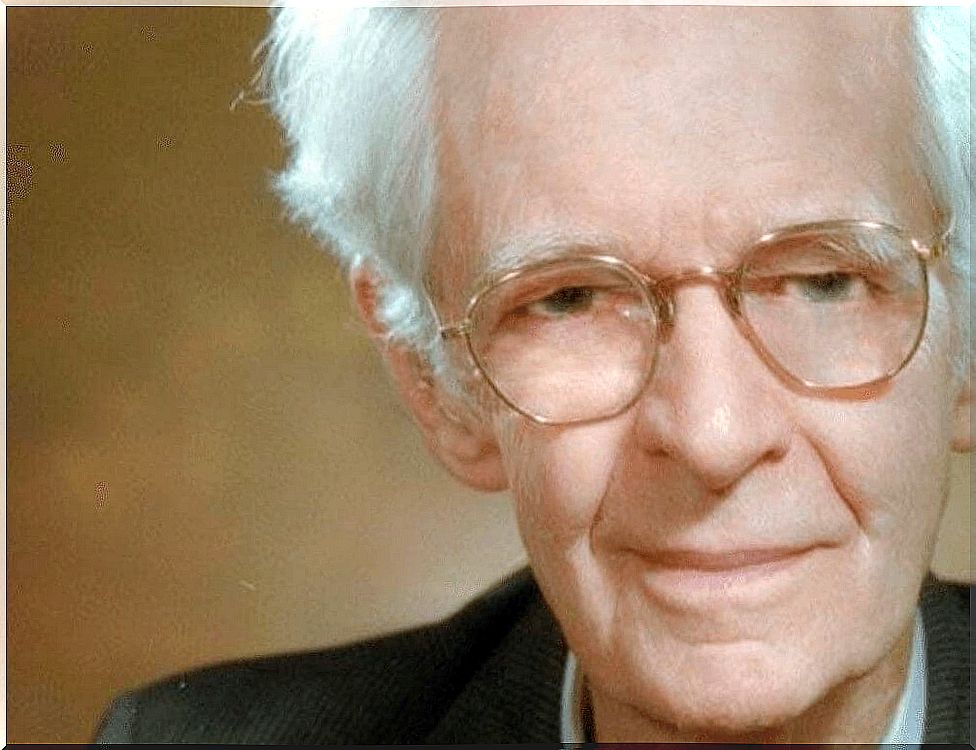Walden Two: Skinner’s Utopian Novel And His View Of Society

In the summer of 1945, BF Skinner wrote The Sun Is But a Morning Star , a utopian novel which he would finally publish in 1948 under the title Walden Two . The idea for this book came in the spring of 1945 during a conversation with a friend.
Both reflected on what the young people would do when the war was over. When asked by his friend what they should do, Skinner replied: ” They should experiment, they should explore new ways of life, just as people in 19th century communities did . “
Walden Two , being Skinner’s first novel, contains much of his scientific knowledge and philosophy of life, mainly on issues of social justice and human welfare. Initially, he sold about 700 copies a year, twice as much as The Behavior of Organisms , the first book he ever wrote on science.
In the 1950s, his basic research on operant human behavior was quite widespread. By then, Walden Two had better integrated Skinner’s philosophy and sold 250,000 copies annually. Towards the end of his life, Skinner continued to address utopian issues and humanistic concerns.

Walden Two, a social utopia
Walden Tw the is utopian in its content. However, Skinner tried to represent in him a “good life” that most individuals could achieve. In doing so, he pointed out five principles he shared with Henry David Thoreau:
- No lifestyle is inevitable ; examine yours closely.
- If you don’t like it, change it.
- Do not try to change through political actions. Even if you manage to gain power, you probably won’t be able to use it any more wisely than your predecessors.
- Ask to be left alone to solve your problems in your own way.
- Simplify your needs ; learn to be happy with less possessions.
The contents of Walden Two
This book describes practices that preoccupied Americans in the 1940s, both materially and emotionally.
Among the first were practices that guaranteed good health and free time. What Skinner offers in Walden Two are conjectures about community practices that could be critical to achieving health, wealth, and wisdom.
Walden Two and health
For Skinner, health encompasses a broad set of practices that include mental, community and environmental health.
Physical health
In Walden Two , the author describes a series of practices to keep people and the community free from disease and promote physical well-being.
Crowds should be minimized and babies isolated as necessary to reduce the spread of infections. It is essential to ensure outdoor exposure to maintain a healthy immune system, in addition to exercising daily and eating nutritious meals for general health maintenance.
Mental health
Walden Two promotes mental health by suggesting providing all individuals with meaningful work. A job that focuses on people’s individual strengths and also guarantees enough free time to practice hobbies and pursue valuable interests.
Working hours should be adjusted to reduce stress. In addition, sufficient opportunities for group activities must be provided, and personal privacy must be preserved whenever possible.
community health
Defined in terms of harmony and cooperation, Walden Two promotes community health through practices such as the equitable distribution of community resources. There should be no titles of honor and everyone should participate in unskilled work.
In addition, the community must raise children and people must go out to eat frequently to interact with others. Everyone must be involved in all types of work, including volunteer work. Both fathers and mothers must take care of the housework and children.
Environmental health
Although not commonly addressed in the 1940s, Walden Two addresses environmental health through practices that are now more routine and commonplace. Skinner describes practices to promote sustainable agriculture, such as maintaining healthy pastures through rotational grazing.
It would be necessary to reduce the use of scarce resources, build energy-efficient houses, use animals instead of machines to control pasture, share houses, establish work schedules, design efficient domestic practices, encourage recycling, reduce waste, change clothing styles slowly to avoid fads, and monitor water quality (eg balance pH levels).

Walden Two and wealth
In Walden Two , Skinner is concerned with practices that could ensure community-wide wealth and equitable distribution of resources within it. For example, each member must contribute their work, thus creating a sufficient group to meet the needs of the community.
In addition, resources must be used judiciously to secure adequate capital, goods and community services from cradle to grave for present and future generations. Finally, in Walden Two, wealth is distributed equitably and no member benefits at the expense of another.
Walden Two and Wisdom
This book is fundamentally about wisdom understood as knowledge, because it is the process and product of science. The community must be involved in educational practices that guarantee freedom and the prevention of ignorance.
Free and equitable education at Walden Two is available to all members, not just in the basic academic skills needed for community survival, but also in the personal skills needed for individual and community harmony.
However, the community engages in practices that go beyond the education of its individual members. Ultimately, he is concerned with seeking and discovering knowledge that benefits the community as a whole.
Wisdom is the central theme in Walden Two. The use of science, both descriptive and experimental, to inform and guide practices that ensure the support of its members and the effectiveness of the community, and therefore, ultimately, its survival.

A practical look
Walden Two , set in the utopian genre, addresses the means to maximize social justice and human well-being by balancing the ability of community members to ensure their survival.
In this book, Skinner describes a myriad of practices for solving problems of individual, social and cultural importance, many of them on a large scale, in relation to economics, education, environmental sustainability, and personal lifestyles.
The solution would be found in the application of behavior analysis to promote individual and community health, wealth, and wisdom.









